Paleontology
-
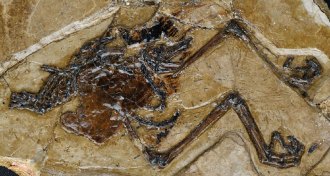 Paleontology
PaleontologyIn a first, a fossilized egg is found preserved inside an ancient bird
Scientists have found the first known fossil of a bird that died with an unlaid egg inside its body. The egg has been crushed by pressure over time.
-
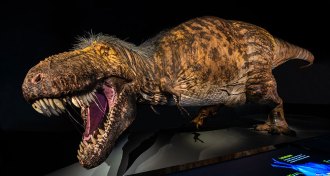 Paleontology
PaleontologyA new T. rex exhibit takes a deep dive into the iconic dinosaur
“T. rex: The Ultimate Predator,” a new exhibit in New York City, draws on the latest science to provide a fresh look at Tyrannosaurus rex and its relatives.
-
 Climate
ClimateDueling dates for a huge eruption reignite the debate over dinosaurs’ death
New dating techniques for the Deccan Traps volcanic eruptions disagree on whether they were the main culprit in the dinosaurs’ demise.
-
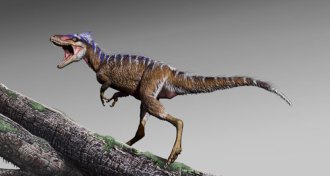 Paleontology
PaleontologyA deer-sized T. rex ancestor shows how fast tyrannosaurs became giants
A newly found dinosaur called Moros intrepidus fills a hole in the evolutionary history of tyrannosaurs, helping narrow when the group sized up.
By Jeremy Rehm -
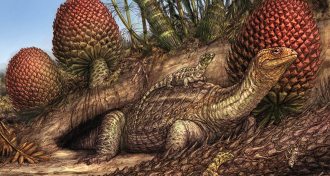 Animals
AnimalsA rare, ancient case of bone cancer has been found in a turtle ancestor
A 240-million-year-old fossil reveals the oldest known case of bone cancer in an amniote, a group that includes mammals, birds and reptiles.
-
 Animals
AnimalsGiant pandas may have only recently switched to eating mostly bamboo
Giant pandas may have switched to an exclusive bamboo diet some 5,000 years ago, not 2 million years ago as previously thought.
By Jeremy Rehm -
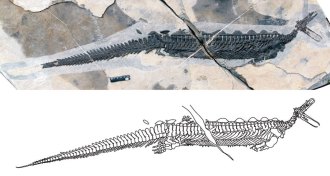 Paleontology
PaleontologyTiny eyes make a bizarre, ancient platypus-like reptile even weirder
An ancient oddball marine reptile had teeny-tiny eyes, suggesting it probably used senses other than sight to catch food.
-
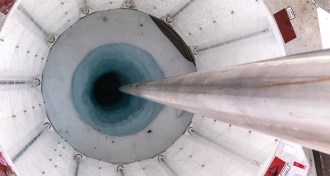 Animals
AnimalsCryptic remains of tiny animals have turned up in an Antarctic lake
Researchers were surprised to find vestiges of what appear to be tiny animals in mud from Antarctica’s ice-covered Lake Mercer.
-
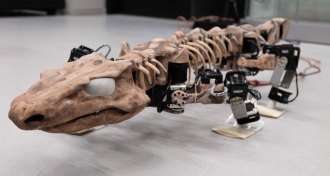 Paleontology
PaleontologyA four-legged robot hints at how ancient tetrapods walked
Using fossils, computer simulations and a life-size walking robot, researchers re-created how an early tetrapod may have made tracks.
-
 Astronomy
AstronomyThese 2018 findings could be big news — if they turn out to be true
Discoveries about fossils, the Big Bang and more could shake up the scientific world – if they turn out to be true.
-
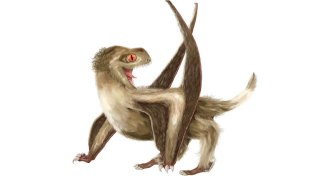 Paleontology
PaleontologyPterosaurs may have been covered in fur and primitive feathers
A new study provides evidence of plumelike structures in ancient flying reptiles.
-
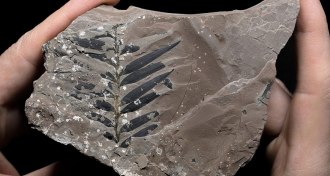 Paleontology
PaleontologyMore plants survived the world’s greatest mass extinction than thought
Fossil plants from Jordan reveal more plant lineages that made it through the Great Dying roughly 252 million years ago.